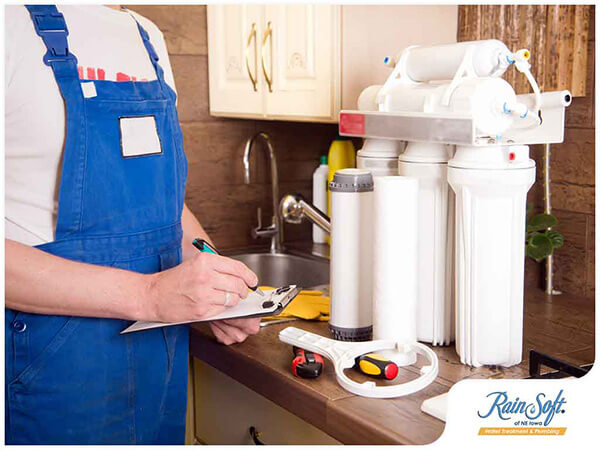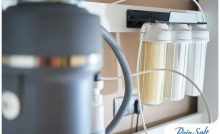What Contaminants Can Water Treatment Systems Remove?
It’s practically impossible for just one water filter to remove all of the contaminants in water. For a water treatment system to produce safe drinking water, it’d need to use several filtration methods. The water treatment experts at RainSoft® of NE Iowa give you an overview of the different filter types and the contaminants they can remove below.

Physical Filters
Most filtration systems will use some kind of physical filter to remove dirt, silt, sand, and other sediments.
Active or Chemical Filters
A standard water filtration system will then need to rely on a chemical filter to remove the smaller particles that passed through the physical filter. The term is a bit misleading though—chemical filters don’t introduce chemicals to treat the water. Rather, they’ve been treated to trigger a reaction in chemicals and other contaminants, making it easier to physically trap and separate them from water.
Carbon Filters
The Environmental Protection Agency estimates that a fifth of the country’s water supply contains VOCs, which can pose a health risk depending on the amount present. VOCs are not normally found in bodies of water—traces of VOCs indicates that the water source has been contaminated by residential and commercial products, like gasoline, solvents, cleaners and degreasers, paints, inks and dyes, and pesticides. Carbon filters are quite effective in removing VOCs from water.
Oxidizing Filters
It’s not uncommon to find traces of chlorine in tap water, given that most municipal water treatment plants use it to disinfect the local water supply. If tap water tastes or smells bad, it might have traces of chlorine. Aside from organic compounds, granular activated carbon filters can also trap chlorine.
If you’re having trouble picking a water treatment system, consult one of your local water purification equipment providers. RainSoft of NE Iowa, a contractor with an A+ rating from the Better Business Bureau®, offers a wide variety of high-quality water solutions. To schedule a free water test, call us at (319) 233-2038.
Recent Posts
How Hard Water Affects Your Plumbing
Hard water, characterized by a high concentration of minerals like calcium and magnesium, is a…
5 Common Chemical Contaminants in Drinking Water
Ensuring clean drinking water is essential for health, but certain chemical contaminants can sometimes find…
Why Water Purification Is Important
Despite the advancements in our municipal water treatment facilities, the risk from contaminants — ranging…
How to Remove 5 Common Tap Water Contaminants
Ensuring our tap water is clean and safe is an ongoing concern for many households,…
What to Look for in a Whole-Home Water Softener
Selecting the right whole-home water softener for your residence addresses not just your water quality, but also…
How Water Softening Is Good for Your Home Pipes
Hard water can dry out your skin and make your scalp feel itchy. It can…






